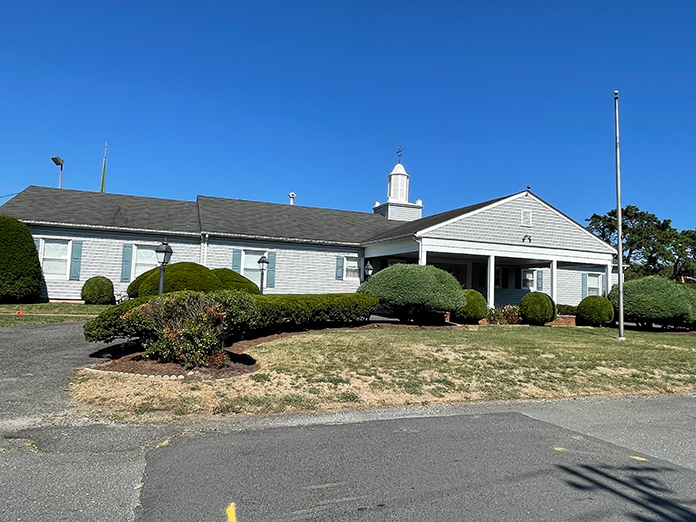
BRICK – The congregation of Temple Beth Or can breathe a sigh of relief after the Board of Adjustment approved their request to use a former funeral home as their new temple.
This was their second hearing before the Board, who rejected the earlier application by one vote in late 2022 on the basis of inadequate parking.
The congregation purchased the former Laurelton Memorial Funeral Home – located near the corner of Pier Avenue and Route 70, next to the St. Thomas Lutheran Church – after selling their former site on Van Zile Road, which was too large for the current membership to manage.
The second application included changes to the plans to address some of the concerns of the Board, including a 27-year lease agreement with nearby St. Thomas Church whereby the temple could utilize the church’s 60-spot parking lot for overflow parking at the cost of $1,000 a year.
Attorney John Jackson, representing Temple Beth Or, said that the temple serves a big geographic area while noting that the closest Conservative Jewish Synagogues are located in Toms River and Howell.
Temple Beth Or Rabbi Robert B. Rubin testified at the hearing and said that the congregation only has about 75 memberships, 10 of which are out of state.
“There’s been a slow decline; people move away, people pass away…there’s never more than seven or eight cars (in the parking lot) at a time,” he said.
The Jewish congregation has been holding their services in the gymnasium and other meeting rooms of St. Thomas Lutheran Church for the past two years.
Jackson explained that houses of worship are considered to be “inherently beneficial” to a neighborhood, and that the application could only be legally denied if it poses a “substantial detriment” to its surroundings.
When the temple’s engineer Jeffrey Carr was asked if there is any substantial negative criteria, he said, “no, absolutely not, it’s the contrary. There will be a reduction in traffic since the funeral parlor generated twice as many trips, and it will get this site back in use…there are no negatives whatsoever in my opinion.”

The former funeral home, which was initially carved from St. Thomas Church property, operated for 50 years at the site and has some preexisting conditions that ride with the property, Jackson said.
Carr said that if the two houses of worship were not connected “there would be a different perception…there is a similar use there that is real.”
Jackson said if the church were to sell, the parking lease for the temple would go with the sale. If the parking lease ended for any other reason, the temple would have to come again before the board, he added.
During public comment, about a half dozen residents expressed concerns about an increase in traffic in the surrounding neighborhood.
Salmon Street resident Brian Scott said the neighborhood is full.
“We have Joe Canal’s, delivery trucks, a bank in our neighborhood, four ARC buildings, 18-wheelers and other cars cutting through to go to Aldi’s, and when the superdome opens…the solution is not to add more to our neighborhood,” he said.
St. Thomas Lutheran Church member Jean Rieker said the synagogue has already been in the area for two years since they’ve been operating out of the church.
“There will be no change in traffic from (the synagogue),” she said. “The traffic has been impacted by other sources.”
During his closing statement, Jackson told the Board that they are dealing with an organization that has been “a very important bedrock of our community for years. It’s very important that they have their place of worship.”
As conditions of approval, Temple Beth Or agreed that there would be no school operating on the property; there would be no outsourcing of the social area of the temple and would only be available to members of the congregation; they would make landscaping and lighting improvements; and they would install sidewalks.
The application was approved with Board member Eileen Della Volle casting the only dissenting vote.






